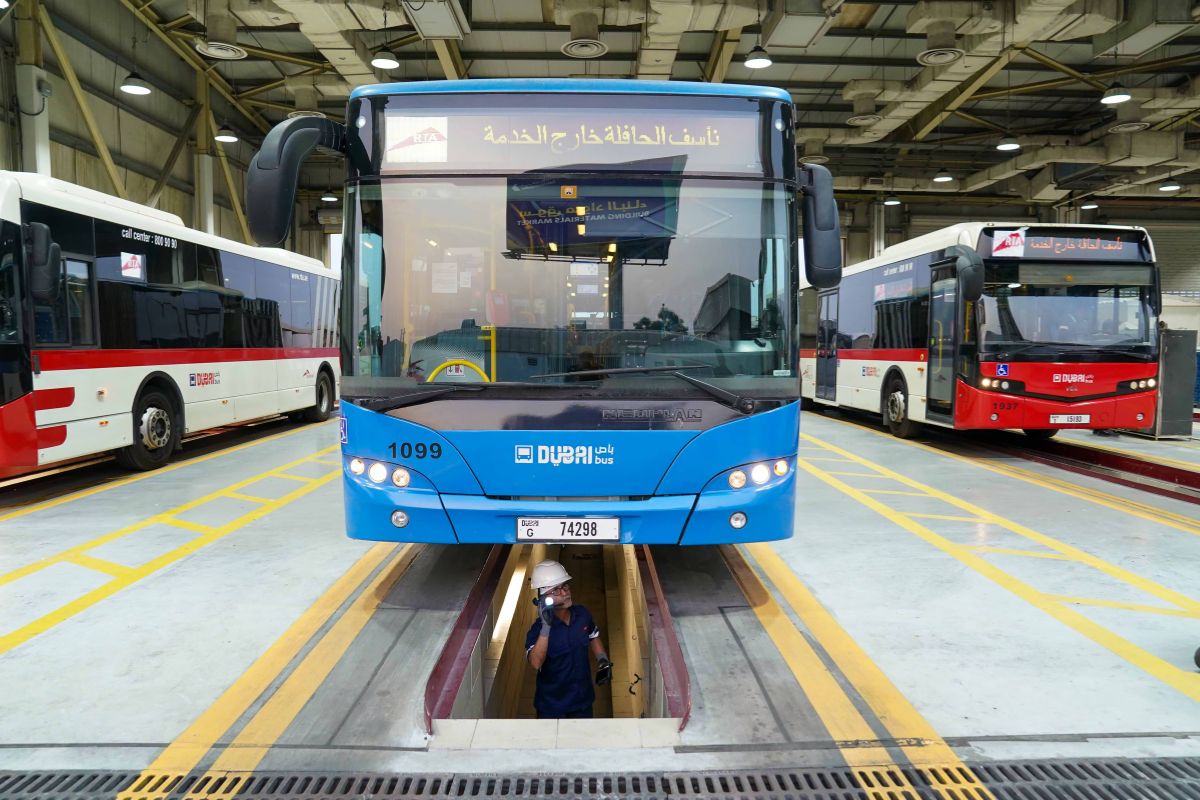Dubai’s Ambitious Overhaul of Public Transport: A New Era in Connectivity and Sustainability
DUBAI, July 20, 2025 — The Roads and Transport Authority (RTA) of Dubai is embarking on a transformative journey to enhance the emirate’s public transportation infrastructure. A substantial fleet of 637 new Euro 6 standard buses is set to be integrated into the existing system between 2025 and 2026. This strategic upgrade aims to not only expand the network but also to significantly elevate the quality of service and enhance mobility for residents and visitors alike.
Expanding Capacity and Efficiency in Transport
The introduction of the new Euro 6 compliant buses, inclusive of 40 electric, zero-emission models from Zhongtong, is a testament to Dubai’s commitment to sustainable transport solutions. This marks a significant milestone as Dubai becomes a pioneer in adopting the Euro 6 standard in the Middle East and North Africa, positioning it at the forefront of environmental innovation in urban transport.
Mattar Al Tayer, the Director General and Chairman of the Board of Executive Directors of the RTA, articulated the vision behind this initiative: “The enhancement of our public transport infrastructure is critical to facilitating mobility within the emirate. Our objective is to broaden the appeal of mass transit options, thereby reducing reliance on private vehicles and contributing to Dubai’s environmental goals.” The ongoing upgrades and expansions are designed to encourage a shift towards more sustainable commuting choices.
Comprehensive Upgrades to Stations and Depots
The RTA has also recently completed renovations at 22 bus stations and six bus depots throughout Dubai, which are integral to the operational ecosystem of public transport. These upgrades were meticulously planned to enhance passenger experience, safety, and comfort. Al Tayer highlighted that these stations and depots do more than serve as mere facilities; they are designed to offer integrated services that simplify journeys for all commuters, including special provisions for people of determination and cyclists.
Among the renovated stations, 16 underwent significant refurbishments, predominantly in Deira and Bur Dubai. These enhancements encompass upgraded waiting areas, modernized infrastructure, and additional facilities such as prayer areas designed to serve the diverse population of the city. The revamped bus stations are equipped to manage 110 bus routes, accommodating approximately 710 buses during peak hours, which reflects a robust capacity to support the growing demands of Dubai’s public transport.
In parallel, improvements made to the bus depots in Al Khawaneej, Al Qusais, Al Ruwayah, Al Awir, Jebel Ali, and Al Quoz include upgraded workshops with advanced maintenance capabilities, improved lighting and drainage, and enhanced security measures. Such enhancements are pivotal for ensuring the operational efficiency and reliability of the fleet, which currently comprises 1,387 buses.
A Commitment to Quality and Safety
The RTA’s strategic investment in the new Euro 6 buses underscores a commitment to safety, comfort, and quality. This procurement includes a diverse array of vehicles, such as 400 MAN buses with a capacity of 86 passengers, 51 Zhongtong buses, 76 double-decker VOLVO buses, and 70 articulated Isuzu Anadolu buses. Collectively, these vehicles are geared towards addressing the transportation needs of high-density urban areas, expanding capacity, and improving service coverage.
The electric buses, designed specifically for the Gulf region and subjected to rigorous local testing, will accommodate 72 passengers each and represent a pioneering effort in reducing emissions within the public transport sector. With ongoing investments like these, Dubai aims to set a benchmark in sustainable urban transport.
A Vision for Seamless Transport Connectivity
The RTA’s plans extend beyond mere bus upgrades, with a comprehensive vision aimed at creating seamless connections across multiple modes of transportation. This holistic approach encompasses improving pedestrian pathways, providing ample bicycle parking, and ensuring safe crossings, thereby encouraging greater uptake of public transit.
Projects that complement these initiatives include enhancements in transport stations at key locations such as Al Ghubaiba, Union, and Dubai International Airport (Terminal 3), further cementing Dubai’s status as a leader in smart mobility and public transport efficiency.
Conclusion
Dubai’s ambitious public transport overhaul is emblematic of its forward-thinking ethos and commitment to fostering a sustainable urban environment. As the city prepares to welcome its new fleet of Euro 6 buses alongside upgraded facilities, it stands poised to redefine the accessibility and quality of urban transit for years to come.
Tags: #UAE #EconomyNews #TransportNews #Sustainability #Bahrain

